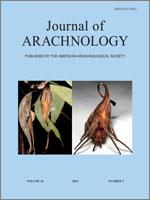The Caribbean Islands are a biodiversity hotspot harboring high levels of endemic biodiversity. In an effort to contribute to the characterization of invertebrate diversity in the region, we present an assessment of pseudoscorpion (Arachnida: Pseudoscorpiones) diversity and distribution with a focus on the superfamily Chthonioidea and the family Olpiidae. We used three markers (cytochrome c oxidase subunit I, histone H3 and 28S rRNA) to infer the first molecular phylogenies for each lineage and identified 32 putative new species in need of taxonomic assessment. These new records include the documentation of the genera Pseudochthonius Balzan, 1892 Lagynochthonius Beier, 1951, Tyrannochthonius Chamberlin, 1929 (Chthoniidae), Antillolpium Muchmore, 1991, Novohorus Hoff, 1945, and Pachyolpium Beier, 1931 (Olpiidae) on various islands. Chthonioid genera are strongly structured geographically, suggesting that many Caribbean species may be short-range endemics and excellent candidate systems for testing biogeographic hypotheses. The olpiid genus Pachyolpium is less geographically structured, which is consistent with the hypothesis that olpiids are better dispersers than chthonioids. This study aims to provide a foundation for taxonomic and biogeographic work on Caribbean pseudoscorpions, revealing a diversity that is far richer than is documented in the literature.
How to translate text using browser tools
1 November 2016
Pseudoscorpion diversity and distribution in the West Indies: sequence data confirm single island endemism for some clades, but not others
Julia G. Cosgrove,
Ingi Agnarsson,
Mark S. Harvey,
Greta J. Binford
ACCESS THE FULL ARTICLE

The Journal of Arachnology
Vol. 44 • No. 3
November 2016
Vol. 44 • No. 3
November 2016
Caribbean
dispersal
new records
PHYLOGEOGRAPHY
Pseudoscorpiones




